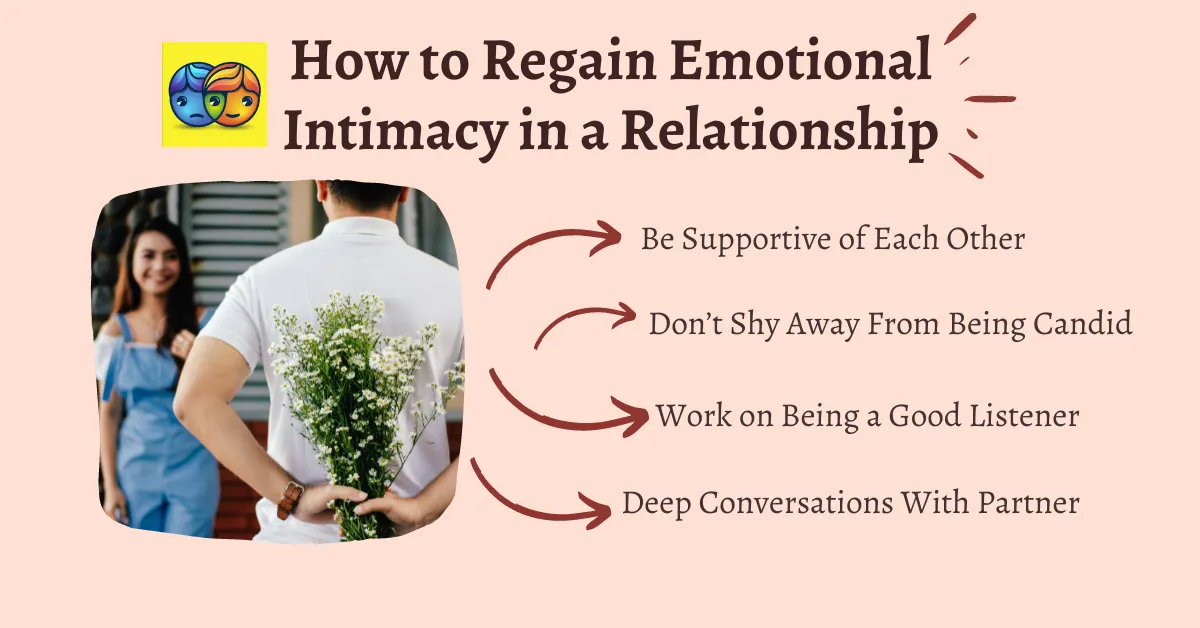In this article, we will explore the concept of emotional intimacy, how it is different from physical intimacy, and why it is important for building stronger relationships. We will discuss various ways to cultivate emotional intimacy with your partner, family, and friends, and also provide some tips for overcoming common barriers to emotional intimacy.
What is Emotional Intimacy?
Emotional intimacy refers to the closeness and connection you share with another person on an emotional level. It involves being open, vulnerable, and honest with each other about your thoughts, feelings, and experiences. Emotional intimacy is an essential component of any healthy relationship, and it can help you feel more supported, understood, and fulfilled.

How is Emotional Intimacy Different from Physical Intimacy?
While physical intimacy involves physical closeness and touch, emotional intimacy is all about the connection you share on an emotional level. Emotional intimacy does not necessarily involve physical touch, but it can lead to a deeper sense of closeness and trust between partners. Emotional intimacy is a key component of a healthy romantic relationship, but it is also important for building strong connections with family and friends.
Why is Emotional Intimacy Important for Building Stronger Relationships?
Emotional intimacy is important for building stronger relationships because it helps you feel more connected, understood, and supported by the people in your life. When you share your thoughts, feelings, and experiences with others, you create a deeper sense of trust and understanding, which can strengthen your relationship over time. Emotional intimacy also helps you navigate conflicts and challenges more effectively, as you are better able to understand and empathize with each other’s perspectives.
How to Cultivate Emotional Intimacy in Your Relationships?
- Start with yourself: The first step to cultivating emotional intimacy is to be open and honest with yourself about your own feelings and experiences. Take time to reflect on your emotions and what is important to you, and be willing to share these insights with others.
- Communicate openly: Effective communication is key to building emotional intimacy. Make an effort to listen actively to what the other person is saying, and respond in a non-judgmental and empathetic way. Be willing to share your own thoughts and feelings, and encourage the other person to do the same.
- Practice vulnerability: Being vulnerable is an essential component of emotional intimacy. This means being willing to share your fears, doubts, and insecurities with the other person, and also being open to receiving their vulnerability in return.
- Spend quality time together: Emotional intimacy requires time and effort. Make an effort to spend quality time together, whether it’s having a meaningful conversation, engaging in a shared hobby, or simply being present with each other.
- Show appreciation: Small gestures of appreciation can go a long way in building emotional intimacy. Take the time to express gratitude for the other person’s presence in your life, and acknowledge the things they do that make you feel loved and supported.
Overcoming Barriers to Emotional Intimacy
Despite its many benefits, emotional intimacy can be challenging to cultivate. Some common barriers to emotional intimacy include fear of vulnerability, lack of trust, and communication difficulties. Here are some tips for overcoming these barriers:
- Acknowledge your fears: It’s natural to feel fearful or vulnerable when opening up emotionally. Acknowledge these fears, and try to work through them with the other person.
- Build trust: Trust is a key component of emotional intimacy. Make an effort to be reliable, honest, and consistent in your interactions with the other person, and also be willing to trust them in return.
- Practice active listening: Active listening involves fully engaging with the other person and making an effort to understand their perspective. This can help overcome communication.
- Seek professional help: If you are struggling to overcome barriers to emotional intimacy, consider seeking the help of a therapist or counselor. They can provide you with tools and strategies to build stronger, more intimate relationships.
- Be patient: Building emotional intimacy takes time and effort. Be patient with yourself and the other person, and keep working towards a deeper, more meaningful connection.
Conclusion
Emotional intimacy is an essential component of any healthy relationship, whether it’s with a romantic partner, family member, or friend. By cultivating emotional intimacy, you can create deeper, more meaningful connections with the people in your life, and feel more supported, understood, and fulfilled. Remember to be open, honest, and vulnerable with each other, practice effective communication, and be patient as you work towards building stronger, more intimate relationships.
FAQs
- What is the difference between emotional and physical intimacy?
Emotional intimacy is all about the connection you share on an emotional level, whereas physical intimacy involves physical closeness and touch. - How can I overcome my fear of vulnerability?
Acknowledging your fears is the first step towards overcoming them. Try to work through them with the other person, and remember that vulnerability is essential for building emotional intimacy. - What if the other person is not willing to be emotionally intimate?
Building emotional intimacy takes effort from both parties. If the other person is not willing to be emotionally intimate, consider seeking the help of a therapist or counselor to work through these issues. - How can I show appreciation for the other person?
Small gestures of appreciation, such as expressing gratitude and acknowledging the things they do that make you feel loved and supported, can go a long way in building emotional intimacy. - What if I still struggle to build emotional intimacy?
If you are struggling to build emotional intimacy, consider seeking the help of a therapist or counselor. They can provide you with tools and strategies to build stronger, more intimate relationships.
- Can emotional intimacy be built in long-distance relationships?
Yes, emotional intimacy can be built in long-distance relationships. Effective communication, spending quality time together, and practicing vulnerability can help build emotional intimacy even when physical distance is a barrier. - How do I know if I have achieved emotional intimacy with someone?
You will feel a deeper sense of closeness, understanding, and trust with the other person. You will also feel more comfortable being vulnerable and sharing your thoughts, feelings, and experiences with them. - What if I am not comfortable being vulnerable?
Being vulnerable can be challenging, but it is essential for building emotional intimacy. Consider seeking the help of a therapist or counselor to work through your fears and learn how to be more comfortable with vulnerability. - Can emotional intimacy be rebuilt after a betrayal or breach of trust?
Rebuilding emotional intimacy after a betrayal or breach of trust can be challenging, but it is possible with effort and commitment from both parties. Seeking the help of a therapist or counselor can be helpful in navigating these difficult situations. - Is emotional intimacy necessary for a healthy relationship?
Yes, emotional intimacy is necessary for a healthy relationship. It helps build trust, understanding, and a deeper sense of connection between partners, and can also help navigate conflicts and challenges more effectively.








